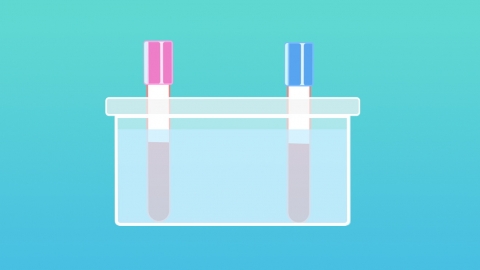What causes elevated high-sensitivity CRP in children?
Generally, elevated high-sensitivity CRP levels in children may be caused by factors such as strenuous exercise, vaccination, acute upper respiratory tract infection, acute bronchitis, or acute pyelonephritis. It is recommended to seek timely medical attention to identify the underlying cause, followed by appropriate symptomatic management under a doctor's guidance. Detailed explanations are as follows:

1. Strenuous Exercise: Following prolonged or high-intensity physical activity, a child's body may experience a transient stress response, potentially leading to a mild increase in high-sensitivity CRP. No special treatment is required in such cases. Have the child stop strenuous activities, ensure adequate rest, and avoid high-intensity exercise for a short period. Rechecking high-sensitivity CRP levels after 1-2 days typically shows a return to normal.
2. Vaccination: After vaccination, the child's immune system becomes activated, which may cause a temporary inflammatory response and elevated high-sensitivity CRP levels. Parents should closely monitor the child's condition. If only a mild increase in CRP is observed without abnormalities such as redness, swelling, or pus at the injection site or fever, no special intervention is needed. CRP levels usually gradually decline within about one week.
3. Acute Upper Respiratory Tract Infection: Often caused by bacterial infections such as hemolytic streptococcus or Streptococcus pneumoniae, such infections can lead to upper respiratory tract inflammation, resulting in elevated high-sensitivity CRP levels. Symptoms commonly include coughing, sore throat, and fever. The child may take medications such as amoxicillin granules, cefaclor dry suspension, or pediatric paracetamol-tramadol granules as directed by a physician.
4. Acute Bronchitis: Bacterial infection affecting the bronchi can cause inflammation, leading to elevated high-sensitivity CRP levels, accompanied by symptoms such as phlegmy cough, wheezing, and low-grade fever. The child should take medications such as azithromycin dry suspension, ambroxol hydrochloride oral solution, or pediatric phlegm-resolving and cough-relieving granules as directed by a physician.
5. Acute Pyelonephritis: Bacterial infections such as Escherichia coli invading the kidneys can cause inflammation, significantly elevating high-sensitivity CRP levels. Common symptoms include frequent urination, urgency, fever, and back pain. The child may follow medical advice to take medications such as cefixime granules, levofloxacin granules, or sodium bicarbonate tablets to alleviate symptoms.
In daily life, ensure the child maintains a regular schedule, avoids excessive fatigue, and consumes a light and easily digestible diet rich in fresh fruits and vegetables. Dress the child appropriately according to weather changes to avoid getting chilled or overheated, thereby reducing the risk of infections.




